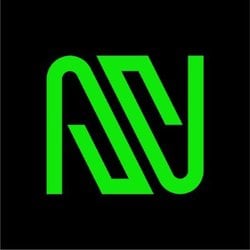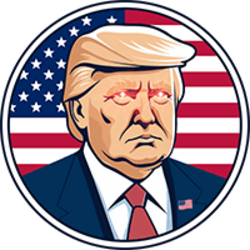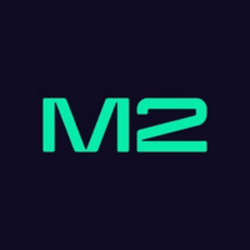
HodlX Guest Post Submit Your Post
Stress tests of major banks have repeatedly failed to uncover serious issues that have led to billions of dollars in losses ecentralized finance) changes all of this.
Right now, the world’s financial system operates under a veil of secrecy.
Global banks currently undergo stress tests to examine whether they can withstand significant and sudden market downturns.
But in some cases, regulators only require these exercises to take place once every two years and the outcomes can be unacceptably opaque.
It is only 16 years since Lehman Brothers spectacularly filed for bankruptcy in what was the world’s biggest commercial collapse ever.
Millions of high-risk mortgages had led to an unstable financial system, as well as a deep and punishing recession when the bubble burst.
Some lessons were learned back then. Scrutiny of major banks increased, and more aggressive affordability checks for home loans were imposed.
Yet despite tighter laws, closer oversight and more stringent stress tests, history keeps on repeating itself.
Just last year, yet another crisis unfolded with the Bank for International Settlements describing it as “the most significant system-wide banking stress” since 2008.
Silicon Valley Bank, Signature and First Republic all suffered high-profile failures, while Credit Suisse endured a humiliating bailout and takeover by rival UBS.
In the space of 11 days, four banks with an astounding $900 billion in assets were shut down creating a contagion effect and a crisis of confidence among consumers.
The Federal Reserve’s aggressive rate hikes exposed inadequate risk management procedures within these corporations, with losses on government bonds leading to large deposit outflows that dealt a fatal blow to their liquidity.
The fact that all of this could unfold so quickly painfully exposes the flaws that exist within stress tests.
Regulators are only getting a mere glimpse into the financial health of banks that billions of people rely on every day and when things go wrong, they’re left playing catch up.
To make matters worse, inadequate levels of transparency are coinciding with an increasingly uncertain economic picture.
Federal Reserve Chairman Jerome Powell has once again admitted that inflation in the US is taking longer than expected to cool and interest rate cuts may not come as soon as hoped.
The heightened cost of borrowing is causing mortgage defaults to tick upwards.
Widespread issues in China’s property market have also cast dark shadow over the world’s second-largest economy, with effects that could be felt elsewhere.
Meanwhile, the International Monetary Fund has warned ongoing conflicts in Ukraine and the Middle East could jeopardize growth prospects in the coming years.
Put it all together, and one thing becomes clear.
It’s never been more important for regular, in-depth stress tests to expose potential vulnerabilities in the financial system ut current methods are falling well short of what’s required.
DeFi offers a compelling alternative and should be embraced by regulators as a matter of urgency.
Lifting the veil of secrecy
When compared with the smoke and mirrors in the world of CeFi (centralized finance) which means sizable risks to the health of an economy are only detected when it’s too late DeFi delivers full transparency and in real-time.
DeFi protocols are self-contained ecosystems governed by smart contracts visible to all.
They’re powered by lines of code that dictate the rules for transactions, eliminating the prospect of human error and greed.
An open-source environment means anyone can access and scrutinize these smart contracts, allowing potential issues to be identified and acted upon quickly.
This is in the interests of all parties concerned the regulators vying to achieve stability, the businesses that wish to avoid costly and reputation-damaging incidents and the consumers who want cast-iron assurances that their savings are safe.
So, what does this mean in practice? Well, it ensures that protocols can be continuously monitored.
Through online simulations, experts can examine how a platform’s liquidity and health are impacted by a multitude of factors including changes to interest rates, mass withdrawals or a sudden decline in asset prices.
This delivers instant feedback on potential weak spots, meaning preventative safeguards can be put in place.
Never before have regulators been able to access such a vast wealth of data so quickly and ascertain the financial fragility or resilience of an entire ecosystem with every passing transaction.
Fostering innovation and competition
All of this goes beyond helping regulators uphold high standards. DeFi also ushers in a new financial era one of inclusion.
Anyone can participate and innovate in the many protocols that now exist today and see where their entrepreneurial spirit takes them.
Whereas old-fashioned firms have proprietary algorithms and complex structures that create barriers to entry, open protocols foster competition and prevent powerful incumbents from forming.
This already has real-world consequences with banks quick to hike the cost of borrowing when interest rates rise but slow to reward savers.
In Australia, banks have been accused of ‘profit push’ pricing because there are few rivals in the market.
Over in Belgium, regulators have compared the financial sector to an ‘oligopoly,’ where competition is suppressed by major banks.
And in a recent poll, two-thirds of Irish adults said they believe that there’s a lack of competition within the banking industry, and it’s difficult to switch to other providers.
It’s time for change.
By embracing DeFi’s transparency and open architecture, regulators can gain a more holistic view of the financial landscape.
Real-time monitoring, coupled with a decentralized structure, offers the potential for a more resilient and inclusive financial system.
DeFi’s promise of interoperability where different protocols seamlessly interact further fosters innovation and paves the way for a vibrant ecosystem.
The time for opaque financial institutions and inadequate stress tests is over.
DeFi presents an opportunity for a more transparent, secure and dynamic financial future and many existing protocols are keen to cooperate with regulators.
PwC recently said, “There is no investment without trust” and achieving compliance can actually add value to a project, as well as encourage adoption.
The potential of DeFi to revolutionize financial systems is undeniable. Its core principle radical transparency offers a powerful tool to prevent future financial crises.
By openly recording all transactions on a public ledger, DeFi eliminates the opaque practices that fueled past meltdowns.
Regulators, instead of fearing disruption, should recognize DeFi’s potential as an early warning system, enabling them to identify and address risks before they snowball.
Edward Mehrez is a co-founder of Arrow Markets, pioneering a new paradigm for options trading on the Avalanche blockchain.
Follow Us on Twitter Facebook Telegram
Disclaimer: Opinions expressed at The Daily Hodl are not investment advice. Investors should do their due diligence before making any high-risk investments in Bitcoin, cryptocurrency or digital assets. Please be advised that your transfers and trades are at your own risk, and any loses you may incur are your responsibility. The Daily Hodl does not recommend the buying or selling of any cryptocurrencies or digital assets, nor is The Daily Hodl an investment advisor. Please note that The Daily Hodl participates in affiliate marketing.
Featured Image: Shutterstock/archy13/Sensvector












































































Be the first to comment